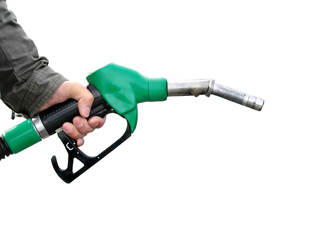Red Driver Risk Management (DRM) says a possible cut in fuel duty will help fleets, but claims its Fuelsave driving course has the potential to save drivers a lot more.
Fleets taking efficient driving courses in 2022 with Red Driver Risk Management have, on average, managed more than three times the savings that the Chancellor, Rishi Sunak, is likely to announce with a 5p fuel duty cut.
While the anticipated cut due in the Spring Statement is to be welcomed says Seb Goldin, CEO of Red Driver Risk Management, Fuelsave training has seen drivers reduce consumption by 11.3% - equivalent to nearly 20p off the current price of diesel.
In some cases, drivers have improved by up to 33%.
“We welcome the Chancellor’s cut, as every penny helps the ‘cost of working’ crisis many businesses are experiencing,” said Goldin. “But with better training fleets can take more proactive steps and take cost reduction strategies out of the hands of politicians.”
Red DRM has found that after its Fuelsave course, based on a vehicle doing 30,000 miles per annum, at 30mpg - a standard white van - the average financial saving (11.3%) equates to an annual saving per vehicle of £884, or at the higher 33% figure, £2,584, based on diesel at 170p per litre.
Drivers have reported that the new driving style they are taught on the course is also more relaxing, and they make progress more efficiently, resulting in journey times decreasing by 3.6%, says Red DRM.
Based on a 40-hour driving week, this equates to 75 hours saved per year, per driver, or a saving of 1.5 hours each week, while the CO2 reduction based on the above scenario is 1,548.40 kg of CO2 per vehicle per year for a diesel vehicle, or 1,412.47 kg for a petrol one.
“For some time, it seems that low fuel prices, the assumption that new vehicle technology takes care of efficient driving, and the move to electrification, makes fuel-efficient driving skills less of a priority, but as the recent price hikes have shown, you can never take your eye off the ball,” added Goldin.
“The combination of the cut in fuel duty, plus our Fuelsave driving course, can give fleets a huge operational and financial advantage. While this will help businesses battle high fuel prices which are likely to continue throughout the rest of this year, the training they receive has a positive on-going effect, no matter what happens.”
With the huge uptake in its Fuelsave course this year, Golden says it’s clear that fleets realise economical driving is still a hugely important skill.
And, while fuel duty may be reduced, it’s likely to rise in the next decade as the Government looks at alternative ways to bring in tax revenue.
“Coupled with reduced demand at the pump as drivers switch to electric – and therefore higher prices as oil companies look to retain profit margins – the days of low diesel and petrol prices may well be over.
“That may not be a problem for drivers in electric cars, but for fleets which rely on diesel vans and trucks, it could be a significant financial burden.”























Login to comment
Comments
No comments have been made yet.